Politics and Government: Organizations and Institutions
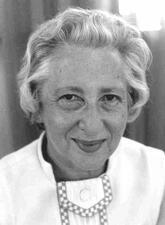
Zena Harman
Zena Harman, diplomat, parliamentarian and social innovator, helped lay the foundation for Israel's advanced network of social services, became one of Israel's foremost diplomats in Israel's formative years, and helped to establish a series of civil society organizations concerned with protecting children's rights, empowering women, and promoting greater civic engagement in public life in Israel.

Janet Harris
Reina Hartmann
Reina Goldstein Hartmann focused her career on improving the lives of Jewish women in her native Chicago, serving as the leader of the Mothers Aid of the Chicago Lying-In Hospital and Dispensary as well as other organizations.
Sylvia Hassenfeld
![Hauser, Rita - still image [media] Hauser, Rita - still image [media]](/sites/default/files/styles/gallery_item/public/mediaobjects/Hauser-Rita.jpg?itok=5eVnMOLV)
Rita Eleanor Hauser

Health Activism, American Feminist
American women have been the “perennial health care reformers.” Women’s health activism has often coincided with other social reform movements. Since the late 1960s, Jewish women have helped create and sustain the women’s health movement through decades of substantial social, political, medical, and technological change.
Ellen Phyllis Hellmann
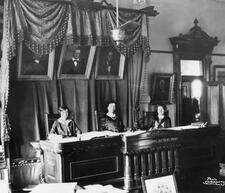
Hattie Leah Henenberg
Hattie Leah Henenberg was a pioneering female jurist in Texas. In 1925, she became a member of the first all-female state Supreme Court.
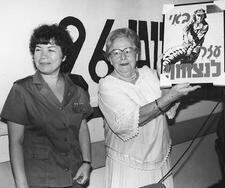
Esther Herlitz
Esther Herlitz was a feminist trailblazer in Israeli politics and diplomacy. She was the first official female Israeli ambassador, among six female Labor Party members who served in the eighth and ninth Knessets, and the first woman to serve on the Committee for Foreign Affairs and Defense. She also helped formulate and ensure the passage of a liberal abortion law in 1977.
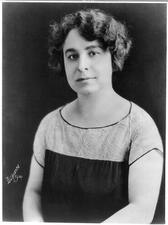
Lillian Herstein
Bertha Beitman Herzog
Bertha Beitman Herzog was an active participant in local and national women’s associations in Cleveland, Ohio. From 1928 to 1930, Herzog served as the first woman president of the Jewish Welfare Federation (later the Jewish Community Federation) in Cleveland, and she received the Charles Eisenmann Award for outstanding community service in 1941.

Susan Hess

Anne Heyman
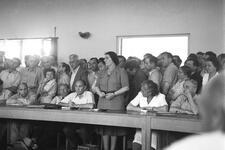
Histadrut
Histadrut (the General Federation of Workers) was founded in 1920 to bring together Jewish workers who had recently arrived in Palestine. Though the organization proclaimed equal treatment and opportunities for women and men workers, the reality was not so simple.
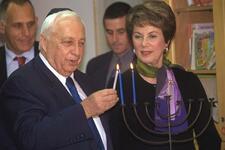
Histadrut Nashim Ivriot (Hebrew Women's Organization)
The Hebrew Women’s Organization was one of the most successful and widespread Zionist women’s organizations to originate in Palestine, rather than North America or Europe. It focused on providing healthcare, social work, and other aid to poor and immigrant women and children across the Yishuv.
Anna Weiner Hochfelder
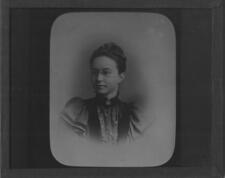
Fanny Binswanger Hoffman
Holocaust Survivors: Rescue and Resettlement in the United States
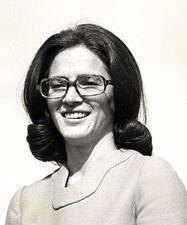
Elizabeth Holtzman
Elizabeth Holtzman pursued a public career epitomizing some of the most important trends in postwar American and Jewish life. In her successive roles as a congresswoman, Brooklyn district attorney, comptroller of New York City, and political commentator, she emerged as an effective and activist public servant, a forceful campaigner, and a champion of liberal and feminist causes.

Fannie Hurst
Fannie Hurst was among the most popular and sought-after writers of the post-World War I era. In her heyday, Hurst commanded huge sums from the motion picture magnates who acquired the rights to her works, 29 of which have been made into movies. Back Street (1932, 1941, 1961), Imitation of Life (1934, 1959), and Humoresque (1920, 1946) are the best known.
International Council of Jewish Women
The International Council of Jewish Women (ICJW) is a Jewish women's organization established at the beginning of the twentieth century, which evolved with the needs and events over time. As a women’s NGO, ICJW participates in a variety of projects promoting women’s rights and human rights, motivated by its roots in Judaism.
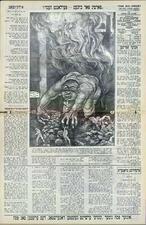
International Ladies Garment Workers Union
The International Ladies Garment Workers Union was founded in 1900 by eleven Jewish men who represented seven local East Coast unions with heavy Jewish immigrant populations. Initially excluded from the union, women began organizing and eventually developed bargaining power after the Uprising of the 20,000 in 1909.
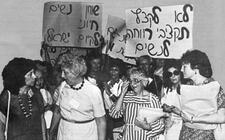
Israel Women's Network
The Israel Women’s Network (IWN) was founded in 1984 and is responsible for many of the feminist breakthroughs in Israel. Though the success of IWN led to an undesirable degree of politicization, it remains an active agent in Israeli feminism.
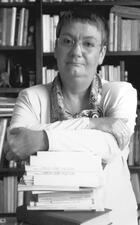
Modern Italy
Jewish women were crucial both to changes in post-emancipation Italian Jewish life and to the overall condition of women in modern Italy. This article reflects on the changes in the role of Jewish women in modern Italy within the Jewish press and institutions, their activism in shaping a secular civil society, and their experiences through the Fascist regime, the trauma of the 1938 Racial laws, emigration, resistance, deportation, survival, and reconstruction.
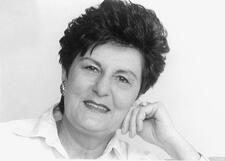
Dafna Nundi Izraeli
Feminist sociologist and peace activist Dafna Nundi Izraeli spent her life dedicated to women's studies, a field of inquiry previously largely unrecognized and trivialized by Israeli academia. She was among the first researchers in Israel to point out the connection between the gender power structures in the Israel Defense Force and in Israeli civilian society. Through her academic and political leadership roles, she worked tirelessly for the advancement of feminist values and scholarship.


